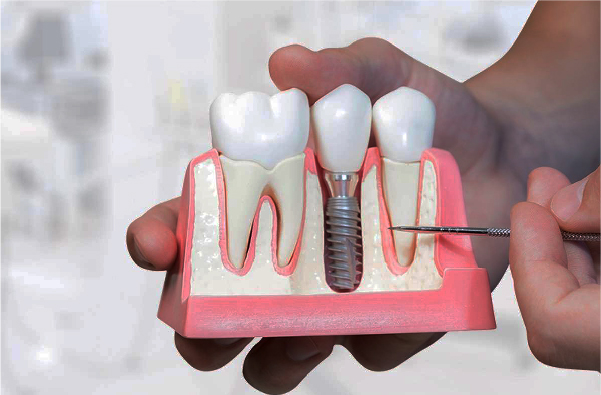Inflammation of implants: reasons, prevention and treatment
Inflammation around dental implants can stem from various sources, reflecting the complexity of factors influencing implant health. A significant contributor to implant inflammation is non proper post-operative oral hygiene procedure. Failure to adhere to proper cleaning routines can result in the accumulation of bacteria around the implant site, setting the stage for mucositis (inflammation of the mucosa) or even more severe inflammation. If the implant becomes inflamed, it is important to see the doctor immediately. The doctor will perform an examination and may ask you to pass additional observations (blood tests, X-ray and etc.) to determine the cause and severity of the inflammation. Here are some steps that may be taken: 1. Antibiotics Never attempt to treat the inflammation yourself and do not delay seeing a doctor. Caring for dental implants involves maintaining excellent oral hygiene by brushing and flossing regularly to prevent plaque buildup. Regular dental check-ups and professional cleanings are essential to monitor the health of the implant and surrounding tissues. It's important to avoid biting or chewing on hard foods that could damage the implant. Additionally, if you smoke, quitting can significantly improve the healing process and reduce the risk of implant failure. Proper care helps ensure the longevity and success of dental implants. Inflammation reasons of dental implants
Smoking presents a notable risk factor for implant inflammation. The harmful components of tobacco smoke can constrict blood vessels, impairing blood flow to the gums and bone surrounding the implant. This compromised circulation hinders the capacity of our organism to combat infections and heal effectively, increasing the vulnerability of implants to inflammatory processes.
The presence of certain systemic diseases, especially diabetes, challenges the healing process after setting the implant. People with uncontrolled diabetes may experience delayed wound healing and greater susceptibility to infections, increasing the risk of inflammation.
Furthermore, the precise placement and alignment of dental implants are critical determinants of their long-term stability and success. If implants are positioned incorrectly or placed under inappropriate conditions, they may subject the surrounding tissues to mechanical stress, leading to irritation.
Insufficient bone quality or quantity in the implant region can compromise the anchorage of the implant, hindering its integration with the surrounding bone tissue. In cases where the bone cannot adequately support the implant, inflammation may arise as a consequence of biomechanical instability.
While allergic reactions to implant materials are relatively rare, they constitute another potential trigger for inflammation in sensitive people. Hypersensitivity reactions to components of the implant, such as titanium or other metals, can provoke inflammatory responses that hinder the implant's viability.
Excessive mechanical pressure on the implant, commonly associated with habits like clenching or grinding teeth, can exert undue stress on the surface of implant. Prolonged or intense forces may exceed the implant's capacity to withstand pressure, causing tissue irritation in the surrounding area.
Moreover, bacterial infections represent a significant threat to implant health, capable of inducing inflammation and compromising the implant's integration with the surrounding tissues. Inadequate sterilization procedures during implant placement or poor post-operative oral care can create favorable conditions for microbial colonization, escalating the risk of inflammatory processes.
By addressing these multifaceted factors comprehensively, our dentists can empower patients with the knowledge and strategies needed to safeguard their dental implants against inflammation and ensure longevity.
What to do in case of implant inflammation?
The doctor may prescribe a course of antibiotics to fight the infection.
2. Removal of the implant
In some cases, especially with severe inflammation or lack of response to treatment, temporary or permanent removal of the implant may be necessary.
3. Drainage
If an abscess has formed, it may need to be drained.
4. Pain relievers and anti-inflammatory medications
Appropriate medications may be prescribed to reduce pain and inflammation.
How to take care of implants?







